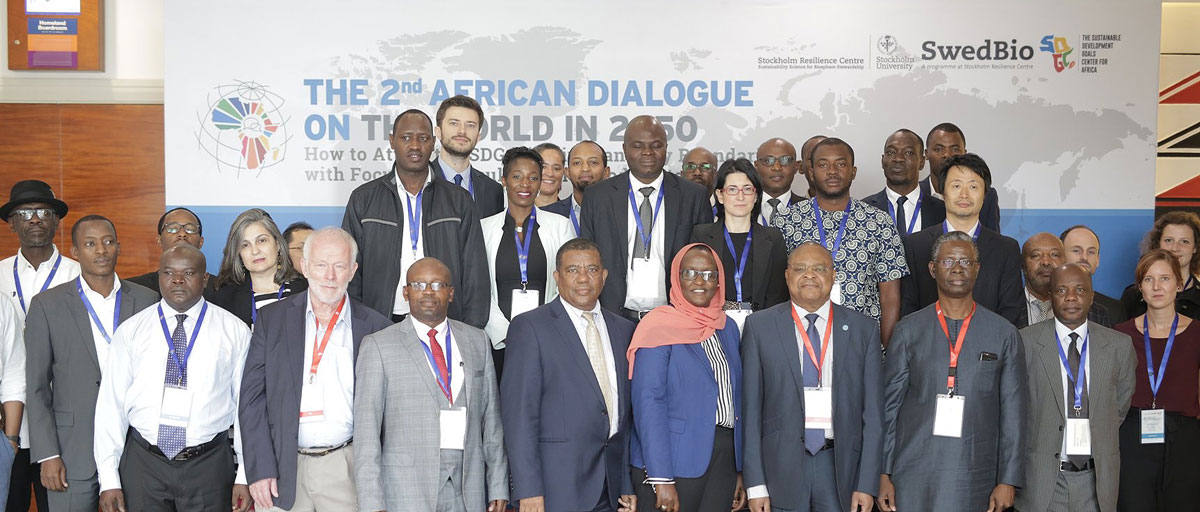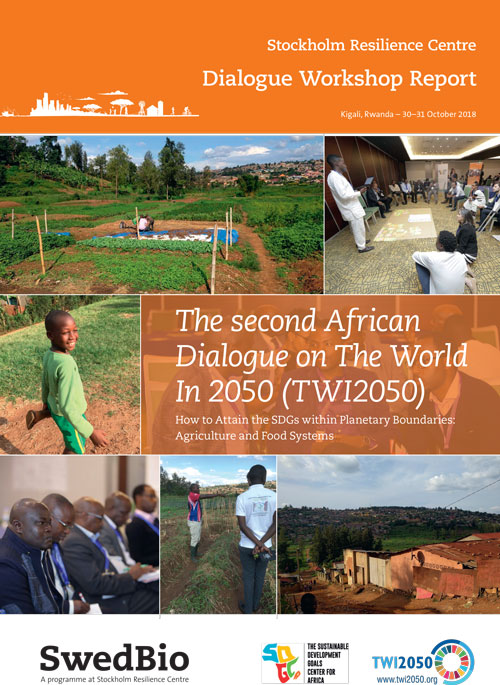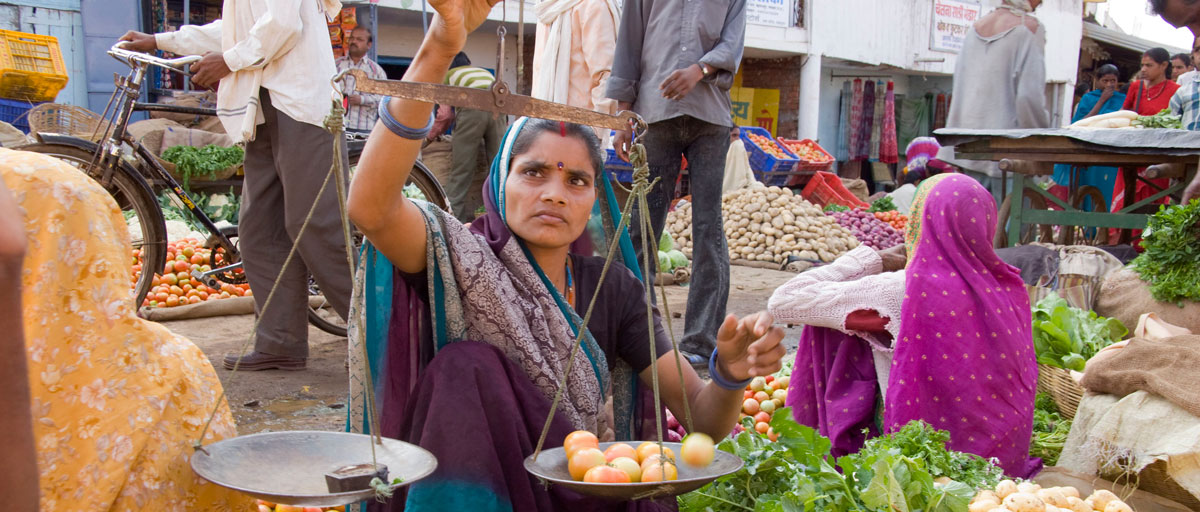
Participants at the second dialogue on Africa’s contribution to reaching the UN Sustainable Development Goals developed list of common actions to form the backbone for “transformation towards the desired futures” in Africa, capable of feeding itself and the world.
Bildtext får vara max två rader text. Hela texten ska högerjusteras om den bara ska innehålla fotobyline! Photo: B. Christensen/Azote
Multi-stakeholder dialogues
The sustainable future of African agriculture
Second dialogue on Africa’s contribution to reaching the UN Sustainable Development Goals focused on agriculture and food systems
- Taking place in Kigali, Rwanda, the dialogue was organised by the SDG Center for Africa in partnership with Swedbio and Stockholm Resilience Centre
- Although the participants acknowledged the enormous challenges for implementing an African agricultural transformation, a vision emerged of a peaceful and prosperous rural and urban Africa
- A report of the dialogue has now been published by Swedbio
How can African agriculture and food systems reach the UN Sustainable Development Goals (SDGs) while staying with planetary boundaries? And how do the visions for agriculture and food systems in Africa align with the perspectives expressed in global scenarios?
This were among the main questions asked during the second dialogue on the role of Africa in reaching the UN SDGs. Taking place in Kigali, Rwanda, the dialogue was organised by the SDG Center for Africa in partnership with Swedbio and Stockholm Resilience Centre. A report of the dialogue has now been published by Swedbio.
Following up from a similar dialogue in 2017, the goal was to bridge the global sustainability scenario community withsub-regional African practitioners and policy makers involved in SDG implementation processes. As with the first dialogue in 2017, the Kigali follow-up was part of The World in 2050 (TWI2050), a global research initiative in support of a successful implementation of the United Nations’ 2030 Agenda.
Empowerment, partnerships and knowledge sharing
Although the participants acknowledged the enormous challenges for implementing an African agricultural transformation, a vision emerged of a peaceful and prosperous rural and urban Africa, capable of feeding itself and the world. To get there, a list of common actions were developed to form the backbone for “transformation towards the desired futures”.
These actions were grouped into three categories:
Empowering youth, women and the population by investing in better education and skills for agricultural production
Consolidating and developing new partnerships across all parts of society (not just the state)
Better collection and sharing of knowledge, technology and data
Necessary to uncover tensions
Inevitably the discussions revealed diverging perspectives on how to deal with issues like increased urbanisation, population growth and, specifically, what agricultural practices work best where. Is sustainable intensification better than agroecology?
The answer lies in the eyes of the beholder, ie. it is contextual. That underlines the importance of multi-stakeholder and cross-scale dialogues like these, the authors of the report says.
“Multi-stakeholder dialogues are essential to help navigate complex and uncertain futures. Capturing divergent perspectives is necessary to uncover tensions that need to be further discussed. We hope this dialogue can inspire similar ones to be held in different levels and geographic contexts.”” says lead report author and centre researcher Ana Paula Aguiar.
Download the report here








